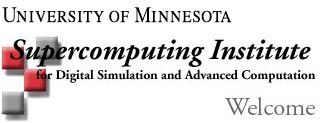
|
What's It Like To Teach A MOOC?
/ Chris Cramer June 8, 2013 |

|
So, anyone who follows my tweets knows that I'm loudmouthedly teaching a Massive Open Online Course (MOOC) called Statistical Molecular Thermodynamics. MOOCs are either the most disruptive force to hit (American) higher education in a century, or they are the latest fad doomed to be absorbed into the status quo in much the same way armies melt into Afghanistan's soil like rain on the parched Khyber Pass. But, poetic license aside, the phenomenon is young enough that many faculty are curious and intrigued to know, "What's it like to teach one?" Of course, I could write forever about that. Actually, more accurately, I couldn't, because I just don't have the time.
But, what the hell, one of my MOOC students asked me roughly the same question, and one owes one's students far more than one's colleagues (at least in the moment), so I wrote a response in the forum that tried to touch on some key points. I reproduce that here -- in my usual "utterly-inept-as-a-blogger" style, anticipating that some may find it of interest.
Original Question: Dear Professor, I am really curious: do you prefer teaching moocs rather conventional lessons? If that is the case, don't you miss the face-to-face contact you would have in other contexts? Anyway, I am utterly satisfied with this course. After the first week I thought about giving up, especially after I received the first homework grades. I was kind of used to full marks on everything I did. But I am learning and making a huge effort to keep up with the work, so thank you for all. You have made a high school student very happy about chemistry. :)
My Response: Hard question. I would have to say that what I am enjoying MOST about this is that it is something DIFFERENT for me. After 20+ years in a conventional classroom, it is a great deal of fun to do something so radically distinct. I'm not sure that I'd say that I like it better, nor less, for that matter -- I'd say it offers unique opportunities for reward for me, as an instructor.
One feature that's wonderful is that there is no one here who does not want to be here. That's pretty unusual in a college classroom -- many people in the conventional classroom are fulfilling some sort of requirement and thus perhaps less willing to engage.
Another feature, which you may find amusing, is the degree to which my in-person students are reluctant to engage with me. They're young, and intimidated by a full professor with years of experience. I try my best not to be intimidating, but it's just a social phenomenon (that keeps getting worse with each year that I age but the students remain the same...) In this venue, on the other hand, I can insert myself into every forum post (so far with reasonable results) and moreover students can even post anonymously if they want some additional cover. So, I end up having a bit more interaction with this virtual class than I would with a traditional lecture, paradoxical though that seem. (Now, in fairness, I don't do traditional lecture much anymore -- I prefer flipping my classroom and reserving meeting times for active learning exercises, but the situation persists to some extent.)
Finally, I confess to honestly being stunned at the breadth of places that students in this course are coming from. I don't mean geographical (although that's totally fascinating, too), but rather "life" places. Some are as young as yourself (high school... remarkable), others are significantly post-retirement. Some are engineers who probably know far more about thermo than I do, but are interested in hearing the molecular-level chemist's point of view, some are just sci-curious folks treating this as a personal enrichment exercise and feeling no compunction to do the homework (unless it's for fun). It's obvious that most of you either never read, or just didn't care, about the pre-requisites in the course announcement, because, well, what the hell -- it's free! So, that's totally unique in my experience, and I don't have to feel responsible for telling you to drop in order to save your time, or your money, or whatever -- instead, I can just enjoy your experience vicariously. (My best moment was when someone posted the question, "How do we know CO2 is linear?" For me, that was like asking a sighted person, "How do you know the sky is blue?" Well, duh... aren't we just born knowing that? Guess not... So -- that was very eye opening for me, and I hope that every time I get a question in a local classroom I have a moment to recall that maybe what I think of as shared knowledge is not to at least one or two students in the room, and do a better job of answering the question in the most informative fashion possible.)
There is a little bit of the same complaining about the grading process occurring for this course, much as occurs in a traditional UMN course, but I feel considerably less constrained by, say, responsibilities to some accrediting body, so it's liberating to be working more to "educate" than to "credential".
Anyway -- thanks for asking. I get lots and lots of faculty asking about the experience, and practicing the things I'm going to want to tell them is very helpful!
Chris
I also had a chance to chat with Minnesota Public Radio about my experience and some of the thinking behind the University's exploration of MOOCs in general. Those interested in that interview can find it here. People who've heard it tell me that they can't tell at all that I had terrible cottonmouth and was shaking with nerves. Huh... No problem to lecture to a room of 1,000, or an internet of 10,000, but a radio host over the phone... Gotta practice!